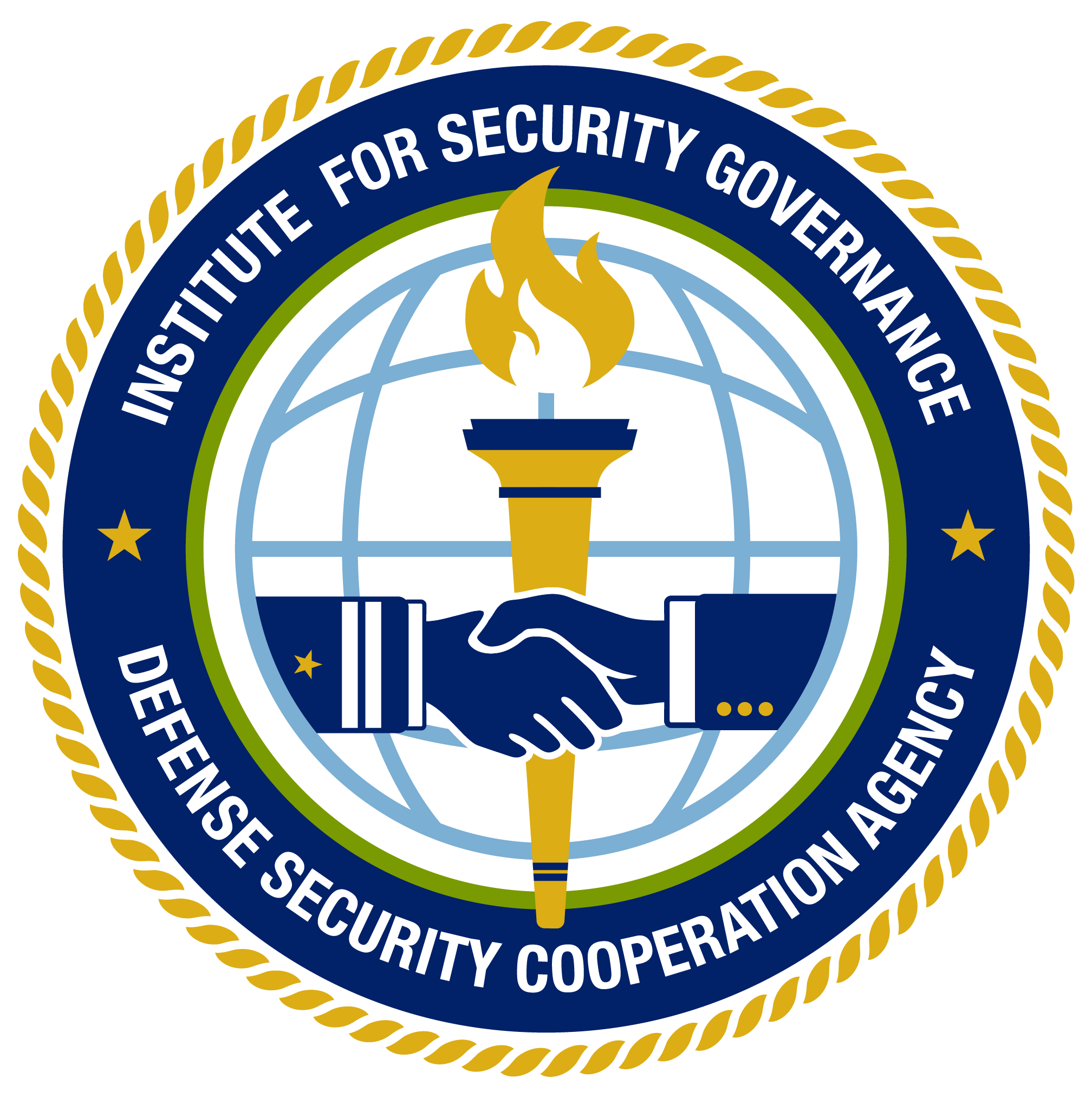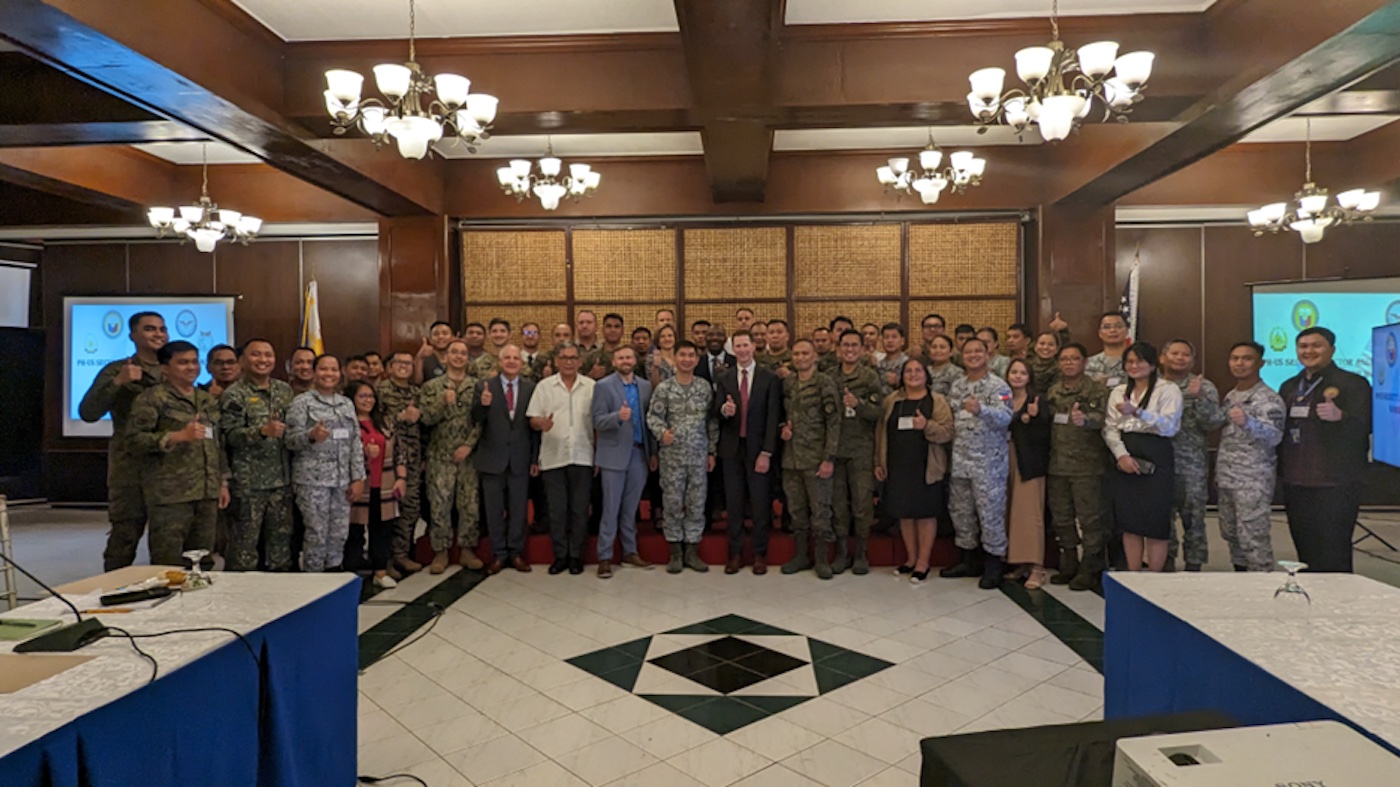TRANSFORMING ALLIANCES: THE PIVOTAL ROLE OF THE U.S.-PHILIPPINES BILATERAL STRATEGIC DIALOG IN REGIONAL SECURITY - Defense Security Cooperation University
ABOUT
defense security cooperation university
2800 defense pentagon, washington, dc 20301-2800
commercial telephone: 571-372-3728 (571-372-DSCU)
international toll-free: 833-438-3728 (833-GET-DSCU)
information requests: dsca.dscu.info@mail.mil
Social Media:
STUDENT SUPPORT
the school of sc studies
the institute for security governance
naval support activity monterey
1635 cunningham road (bldg, 259), monterey, CA 93943-5011
commercial telephone: +1 831.656.3171
fax: +1 831.656.3351
email: ISGINFO@NPS.EDU
website: instituteforsecuritygovernance.org
Social Media:
the defense institute of international legal studies
441 elliot avenue, newport, ri 02841-1531
commercial telephone: 401-841-6000
website: dscu.edu/diils
Social Media:
publications & resources
sc certification
-
ABOUT
- DSCU
- CAREERS & OPPORTUNITIES
-
ADDITIONAL INFO
defense security cooperation university
2800 defense pentagon, washington, dc 20301-2800commercial telephone: 571-372-3728 (571-372-DSCU)
international toll-free: 833-438-3728 (833-GET-DSCU)
information requests:
dsca.dscu.info@mail.mil
Social Media: - ABOUT
- STUDENT SUPPORT
- SSCS
-
ISG
- ABOUT
- OUR WORK
- NEWS
- RESOURCES
-
ADDITIONAL INFO
naval support activity monterey
1635 cunningham road (bldg, 259), monterey, CA 93943-5011
commercial telephone: +1 831.656.3171
fax: +1 831.656.3351
email: ISGINFO@NPS.EDU
website: instituteforsecuritygovernance.org
Social Media: - ISG
-
DIILS
- ABOUT
- LEARNING
-
ADDITIONAL INFO
441 elliot avenue, newport, ri 02841-1531
commercial telephone: 401-841-6000
website: dscu.edu/diils
Social Media: - DIILS
- RESOURCES
- CERTIFICATION
-
DSCU

Defense Security Cooperation University
CSOD Prelaunch Message
NOTE: A Common Access Card (CAC) and CSOD account are required
Registration is completed using a system called Cornerstone on Demand (CSOD) hosted by the Defense Acquisition University (DAU). You will sign in to this system on the next screen.
If you currently occupy a Security Cooperation Workforce position and do not see any courses listed after signing in to CSOD, please press the button at the top of your screen to open Frequently asked questions, and read the solutions under the "CSOD Sign In Issues" category.
Press the button below if you are ready to proceed. If you have trouble signing in, press the the next screen's "Need help signing in?" link To Get help.
Defense Security Cooperation University
Certification Center Prelaunch Message
NOTE: A Common Access Card (CAC) is required to access the Certification Center
If you receive an "Untrusted Site" or "Untrusted SSL Server Certificate" error when trying to access the Certification Center, please follow the instructions in the link below to update your Internet browser's certificates, and then try again.
How to Update Browser Certificates for the Certification Center

Jan 31, 2024
TRANSFORMING ALLIANCES: THE PIVOTAL ROLE OF THE U.S.-PHILIPPINES BILATERAL STRATEGIC DIALOG IN REGIONAL SECURITY
In a landmark development at the 2022 U.S.-Philippines Bilateral Strategic Dialog (BSD), both nations pledged to fortify their alliance through the creation of a groundbreaking Philippines - Security Sector Assistance Roadmap (P-SSAR). This strategic initiative is designed to seamlessly link strategy to resources, ensuring a focused approach to mutual security assistance planning. The P-SSAR aims to address shared security challenges by investing in capabilities agreed upon bilaterally, fostering efficiency in the expenditure of foreign military financing (FMF) and International Security Cooperation Program (ISCP) funds.
The Office of the Secretary of Defense (OSD) has entrusted the Institute for Security Governance (ISG) with the pivotal role of designing and implementing the P-SSAR. Under a five-year Bilateral Action Plan, ISG is spearheading the effort through a collaborative security sector Action Officer Working Group (AOWG). The first AOWG session that OSD convened witnessed bilateral consultations involving key players such as the Philippines Department of National Defense, Department of Foreign Affairs, Department of Transportation (which oversees the Philippine Coast Guard), U.S. Indo-Pacific Command, and the U.S. Department of State.
ISG’s domain (e.g., Air, Ground, Maritime) and functional (e.g., Intelligence, Logistics) group design approach within the AOWG focused on prioritizing capabilities aligned with current strategic guidance. This strategy aims to enhance interoperability and support the Philippines in transitioning from internal security operations to a robust territorial defense posture. The second AOWG session marked an historic milestone with the introduction of the first-ever bilateral Assessment, Monitoring, and Evaluation framework in the Indo-Pacific region. This framework serves as a comprehensive tool to track progress towards capability end states, ensuring accountability and effectiveness.
Leveraging a capability-based planning approach, ISG provides crucial advising to the AOWG on agile acquisition strategies. This includes the use of properly sequenced hybrid funding mechanisms such as national funds, FMF, and International Security Cooperation Program (ISCP) funds. The goal is to ensure the affordability of systems and facilitate the rapid development and fielding of new capabilities. ISG further contributes by offering cost estimation for both material (e.g., equipment) and non-material solutions (e.g., doctrine), enabling responsible budgeting and long-term sustainment. Additionally, pre-costed and vetted capability packages are prepared for immediate action through letters of request for Foreign Military Sales (FMS), ISCP proposals, or national funds.
The impact of the P-SSAR is already evident, with FY24 FMF allocations directed towards capabilities that enhance territorial integrity in the South China Sea/West Philippine Sea. Philippine President Marcos, acknowledging the strides in bilateral cooperation, highlighted the ISG-led P-SSAR effort as an example of our increased bilateral cooperation during an address at the Asia-Pacific Center for Security Studies. A significant milestone is anticipated during the 2024 2+2 Ministerial in the Philippines, where the official signing of the P-SSAR is slated as a key deliverable. This underscores the commitment of both nations to transforming alliances and contributing significantly to regional security matters.
In conclusion, the U.S.-Philippines alliance is at the forefront of shaping regional security through the innovative P-SSAR. The collaborative efforts, guided by ISG, reflect a commitment to strategic planning, efficient resource utilization, and the development of capabilities that address evolving security challenges. As the P-SSAR progresses towards official signing in 2024, it stands as a testament to the enduring strength and adaptability of this vital alliance in the Indo-Pacific region.